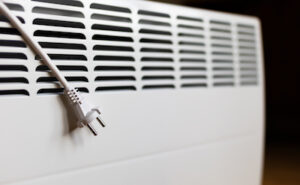Choosing the Right Heating System for Your Home
Choosing the right heating system for your home can be a daunting task. There are so many different types of heating systems available on the market, and it’s challenging to know which one is right for your needs. So how do you choose the right heating system for your home?
You need to take your needs and wants into consideration and then pick out a heating system based on those answers. These key factors to take into consideration include the size of your home, your climate, your budget, the system’s efficiency, your preferences, home and system compatibility, your home’s insulation, and the age of your home.
Remember, this is a considerable investment, and any mistakes could be costly, so do your research and ask plenty of questions. Consult an expert who can also offer heating repair services in the future. They can assess your situation and make appropriate recommendations. Read on to learn more about your ideal heating system.

What Are the Different Types of Heating Systems?
Many heating systems are available for homes, each with pros and cons. The choice is vast and varied; it depends on your needs and preferences. Here are the options.
Forced Air Heating System (Furnace)
A forced air system is the most popular type of heating system. It uses gas or oil to heat air, circling through the home using a fan. The advantage of this system is that it’s also ideal for cooling in the summer. All you need to do is install a central air conditioner.
This system is more efficient as the heat exchanger can operate at higher temperatures, which means lower fuel costs. In addition, this system is easier to control the temperature with and offers more consistent heating throughout the home. It’s also quite affordable.
Water-Based Heating System (Boiler)
A water-based heating system uses hot water to heat the home. The water is circulated through a system of pipes and radiators. This system is very efficient as it can hold heat for a long time. In addition, it’s quiet and doesn’t circulate dust like a forced air system.
The downside of this system is that you need a space for the tank, and it can take longer to heat the home. If the pipes freeze, they can burst and cause significant damage. This system is also more expensive to install and repair.
Heat Pump
A heat pump is a forced air system that uses electricity to move heat from one place to another. It can also work in reverse to heat your home. This system is efficient as it doesn’t generate heat; it just moves it. The downside of a heat pump is that it doesn’t work well in icy climates. In addition, it’s more expensive to install and repair than a forced air system.
What to Consider When Choosing Your Heating System
After understanding the different heating systems available, consider your needs and preferences. Here’re a few factors to keep in mind.
1. The Size of Your Home
A larger home will need a more robust system to heat it effectively. In addition, the layout of your home will impact the type of system you need. For example, a two-story house will use a different system than a one-story home. The ceiling height and the insulation will also affect the system size. A technician can help you determine the right system size for your home.
2. Your Climate
The climate you live in will also dictate the type of heating system you need. If you live in a warm climate, you won’t need as powerful of a system as someone who lives in a colder climate. A heat pump might be sufficient for a warm climate, but it wouldn’t work well in a cold climate.
3. Your Budget
Your budget is an essential consideration as it determines the size, make, and model of the system you can afford. In addition, factor repair and maintenance costs. However, a more expensive system might have lower operating costs. Take time to understand all the costs associated with each type of system before deciding.
Compromising on the size and quality of your heating system will have consequences. It might make your home less comfortable than you’d like, or you’ll be paying more for energy costs. Work with a professional to get the right system.
4. The System’s Efficiency
Efficiency impacts your energy bills. More efficient systems cost more upfront but will save you money in the long run. In addition, consider the system’s impact on the environment. Some systems, like heat pumps, are more environmentally friendly than others. Go for a system with an efficiency that makes sense for you and your budget. The most recommended is 8-10.
5. Your Preferences
Some people prefer the quiet operation of a water-based system, while others like the instant heat of a forced air system. In addition, think about the features that are important to you. Some systems come with built-in humidifiers, while others have filters to remove allergens from the air. Choose a system that fits your needs and preferences.
6. Is It Compatible with Your Home?
If you have a smart home, ensure the chosen unit is compatible with your other systems. For example, some can be controlled by your smartphone or tablet. It’s convenient if you’re often away from home or traveling.
7. Your Home’s Insulation
Insulation is a critical consideration as it will impact the efficiency of your heating system. If your home isn’t well insulated, heat will escape, and your system will have to work harder to heat the space, increasing your energy bills. If unsure how well-insulated your home is, have a professional assess it. They can also recommend ways to improve the insulation.
8. The Age of Your Home
The age of your home can impact the type of system you need. Older homes often don’t have the ductwork required for a forced air system. It means you’ll need to install ducts, which can be expensive. In addition, some older homes have electrical panels that can’t handle the power requirements of a heat pump. Let a professional assess your home before making a decision.

How to Make Sure Your New Installation Serves You Longer
After buying and installing the heating system, the next step is understanding how it operates and the importance of regular maintenance. Not following the manufacturer or dealer’s recommended maintenance schedule can void your warranty.
The first few years are crucial to the longevity of your system, and you, therefore, need to be extra careful. Below are key pointers in this regard.
Take Time to Understand the Manufacturers Manual
Read the manufacturer’s manual to know the different parts of your system. Doing this lets you know how to operate and identify its different sounds. The manual will also give you an overview of the maintenance schedule.
Schedule Seasonal Maintenance Checks
Make time for a contractor to check your system before the start of each season. The specialist will clean the system and make necessary adjustments. Doing this ensures your unit is always in good condition and catches any potential problems early on. During an annual tune-up, possible issues that a contractor will look for are:
- Wiring problems
- Refrigerant leaks
- Dirty air filters
- Clogged drains
Respond to Strange Noises Immediately
Strange noises coming from your system usually indicate a problem. Don’t ignore them; instead, call a contractor to check it out. The issue could be anything from a loose part to a refrigerant leak.
Replace Parts as Needed
Over time, system parts will wear out and need a replacement, which is normal wear and tear. When replacing parts, use those compatible with your system. Follow an experienced contractor’s recommendation on the best replacement options.
Keep the Area Around the System Clear
Keep the area around your system free of debris, dust, and other materials that can block airflow. If there’s insufficient airflow, your system will overwork itself to heat or cool your home, shortening its lifespan. Remember to remove furniture, boxes, and other items near vents. Blocked air flow can also lead to uneven heating and cooling.
Never Try to Repair the System Yourself
While you may understand how the system works, only a professional contractor should repair it. They have the experience and expertise to carry out repairs safely. In addition, most manufacturers void warranties if repairs are done by anyone other than a qualified contractor.

Find a Good Contractor
Not all contractors are the same. Some are more qualified than others. When looking for a contractor, consider the following:
- The contractor’s experience levels—choose one who has been in business for many years.
- The contractor’s licensing and insurance—this protects you in case of damages during the repairs.
- The contractor’s reputation—read reviews and talk to past clients.
A good contractor will have no problem providing you with references.
Remember to Change the Filter
A dirty air filter puts extra strain on your system, making it work harder and lowering its efficiency. As a rule of thumb, change your filter every three months or sooner if it appears dirty. If you have pets or live in a dusty area, change it more frequently.
Take Good Care of the System
The tips above will help you choose the best system for your needs and budget. Once you have a new system, follow the manufacturer’s maintenance schedule to keep it running efficiently for many years. Remember, your system is a vital part of your home, and you should take good care of it. If you have any concerns, always consult a professional contractor.
